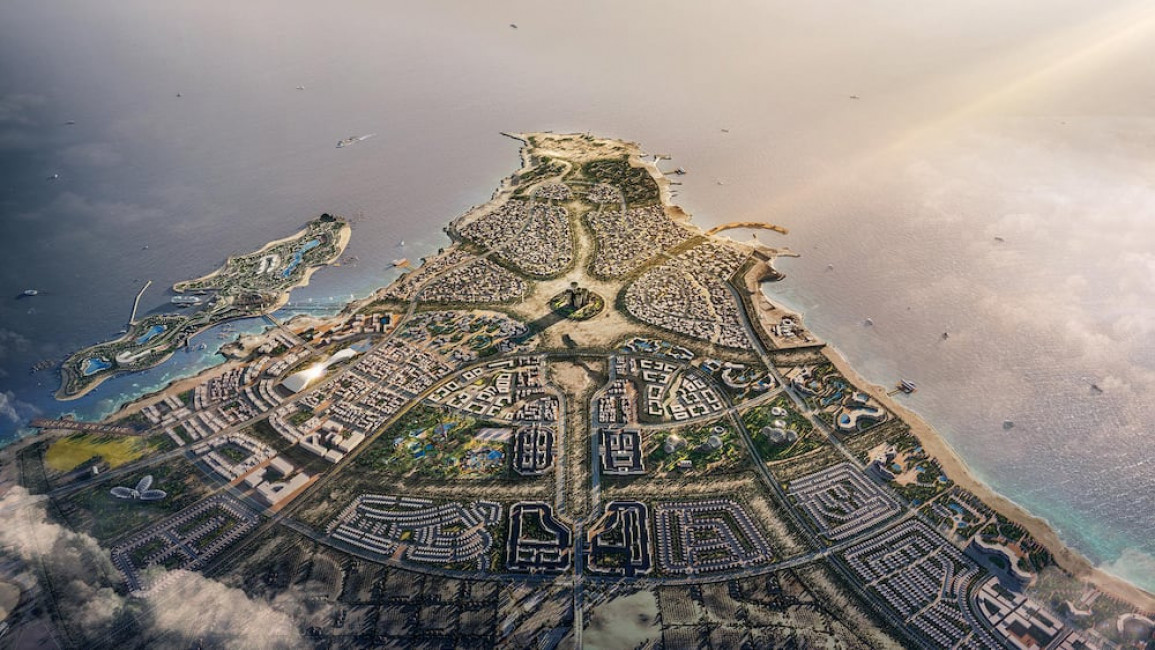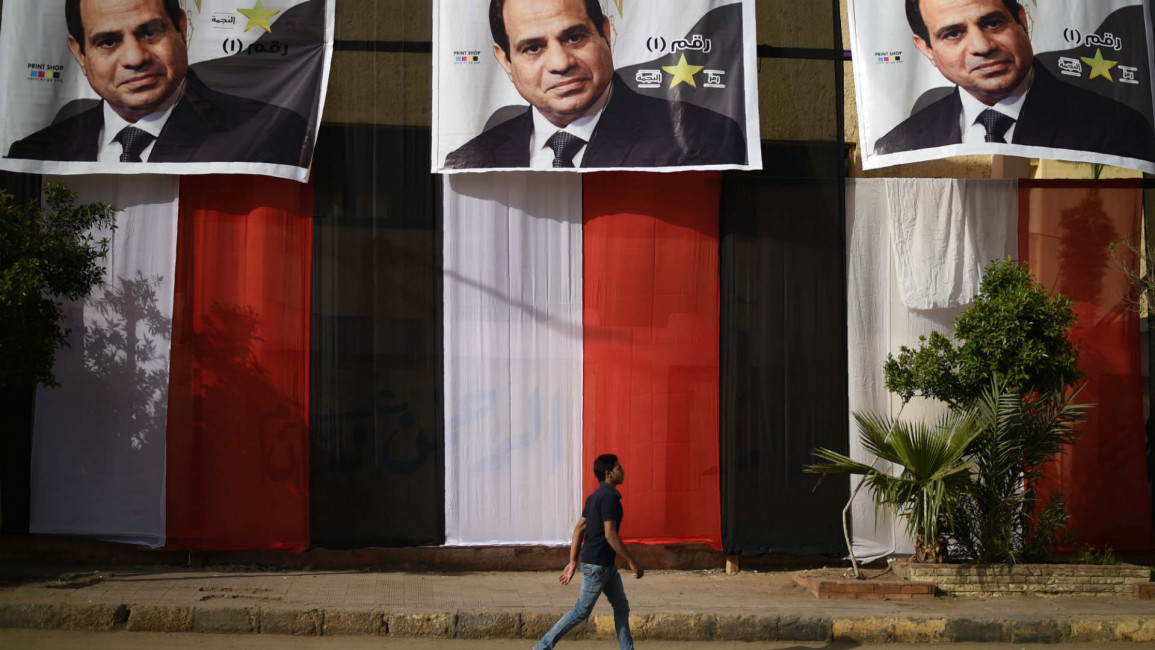
Ras al-Hekma: How Egypt is exchanging land to unlock Gulf funds

The sale of Egyptian land to Gulf states has emerged as a key government strategy to bolster the economy, but these new development deals give up prime real estate and only buy time instead of addressing much-needed structural reforms, analysts have told The New Arab.
Egyptian officials last weekend entered a $35 billion agreement with the UAE to develop the north coast resort of Ras al-Hekma. The landmark deal will bring much-needed foreign currency to Cairo and has caused the black market to crumble.
“It’s a surprise for everyone,” Egypt analyst Maged Mandour told The New Arab. “It was announced now because the currency crisis is reaching a peak.”
The agreement between the UAE and Cairo involves a fast exchange of funds and $15 billion is arriving immediately, followed by another $20 billion within two months. Egypt’s prime minister Mostafa Madbouly expressed relief that the project would help the FX crisis, saying, "This investment would contribute to resolving [it]".
"The sale of Egyptian land to Gulf states has emerged as a key government strategy to bolster the economy, but these new development deals give up prime real estate and only buy time"
Foreign direct investment into Ras al-Hekma underscores a new trend of wealthy Gulf powers heavily backing Egypt in exchange for land in the country’s most coveted spots. A further sale of Ras Gamila in the Red Sea to Saudi Arabia’s sovereign wealth fund PIF is on the horizon.
This could mean increased Gulf tourism and wealth flows to these areas. The huge sums also provide comfort to Cairo’s Central Bank, but there are concerns over the long-term sustainability of selling prized land to wealthy bidders, as opposed to making tough economic reforms.
“In the short term, it might alleviate the hard currency crisis,” said Mandour. “But in the longer term, we're going to be back in the same spot a couple of years in the future. Maybe not even that long.”
“[The investment] means it will be even harder to convince the regime to do the necessary reforms or to demilitarise the economy.”
The timing of the announcement is equally important, as Egypt must pay a record high of $29.23 billion of external debt service in fiscal 2024. The country is navigating tough decisions over Rafah and the Red Sea but is running out of options to raise fresh capital as an ever-promised IMF package stays just out of reach.
“Especially after the situation with Israel and Palestine, it is a very powerful statement for the UAE to make a big investment in Egypt,” said Matteo Colombo, a researcher at the Clingendael Institute focused on the MENA region.
“It also shows how Egypt is willing to allow for big investment that might lead to less control over an area.”
|
|
What does it mean for Egypt's economy?
Egypt faces repayments on its Eurobonds in the coming months as well as pressure to solve the import backlog, budget deficit, and high inflation. A $35 billion cash injection allows Cairo to remain operational without needing to resort to drastic measures such as a full-blown debt restructuring or a massive currency devaluation.
“The numbers seem to be sufficient to make sure that the regime does not default and they don’t have to restructure the debt. Those two things would have been very difficult for the regime to handle,” said Mandour.
“So it's kind of at least a minimum, which is you won't default and you won't have to restructure the debt. But if it will actually alleviate a crisis that remains to be seen because the [cash] shortage was so intense, there's a backlog of imports and there are FX needs that really haven't been fulfilled yet. It’s definitely just a short-term fix.”
"The change of tune from the UAE and potentially Saudi Arabia reflects a new chapter of their relations with Egypt and a newfound enthusiasm to help Cairo tackle its economic problems"
After the government announced the $35 billion investment, the value of the Egyptian pound in the parallel market fell against the US dollar from the low 60s to the low 40s due to the anticipated surge of dollars in the economic ecosystem.
In international debt markets, Egypt’s 2032 and 2033 Eurobonds both rose five cents to the mid-70s, showing increasing investor confidence in the nation’s longer-term economic recovery.
Almost all of Egypt’s sovereign debt now trades above 70 cents on the dollar, suggesting investors no longer regard the sovereign as being in distressed territory or facing a risk of restructuring.
What does it say about Cairo-Gulf relations?
Amid geopolitical turmoil in the region, Egypt is once more a country of focus for the Gulf states.
“It shows that for the Emirates, Egypt again is a very strong priority,” Colombo said. “Even more so with the issue with the Red Sea and the risk that this will become an unsafe export route for the Emirates.”
He added: “Egypt is a country where the Emirates are willing to spend an exceptional amount of money”.
ADQ, UAE's sovereign wealth fund, will lead the investment with $24 billion of funds designated to create a resort city with a UAE-managed airport in the area of Ras al-Hekma. The remaining $11 billion is earmarked for development projects across Egypt.
|
|
Gulf states have been reluctant to provide financial support to Egypt in the past 12 months and warned Cairo the days of blank cheques are over. Cairo’s efforts to sell state-owned enterprises and pleas for foreign direct investment have largely fallen on deaf ears until now.
“In the beginning of the crisis, I thought they would help Egypt out,” said Mandour. “But they seemed to be very reluctant to do so. They applied pressure for Egypt to commit to reforms, but those talks failed.”
The change of tune from the UAE and potentially Saudi Arabia reflects a new chapter of their relations with Egypt and a newfound enthusiasm to help Cairo tackle its economic problems.
“Effectively, these are not investment projects,” Mandour said. “These are rescue packages. It's not an actual investment project in the traditional sense.”
"In the short term, it might alleviate the hard currency crisis. But in the longer term, we're going to be back in the same spot a couple of years in the future. Maybe not even that long"
Why are these deals being announced now?
Negotiations for such a huge investment would have taken place behind closed doors for months, and the timing of the announcement is a strategic move for Egypt’s regime.
“The regime knew that it had to devalue the pound, and they had no currency reserves to depend on,” Mandour said. “Without the new investment, the pound would have gone through a historic collapse. Like, who knows, where was it going to stop?”
The timing brought increased investor confidence in Egypt’s economy, reflected in the bond moves, and also hinted to the IMF and Western investors that Egypt can depend on its neighbours for financial support.
“The reasons are more internal Egyptian dynamics, economic pressures, rather than overall regional issues regarding the Palestinians, and the war in Gaza,” added Mandour.
Lara Gibson is a Cairo-based journalist closely following Egypt's economic and political developments.
Follow her on Twitter: @lar_gibson



![President Pezeshkian has denounced Israel's attacks on Lebanon [Getty]](/sites/default/files/styles/image_684x385/public/2173482924.jpeg?h=a5f2f23a&itok=q3evVtko)



 Follow the Middle East's top stories in English at The New Arab on Google News
Follow the Middle East's top stories in English at The New Arab on Google News


